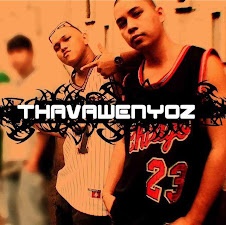By Jason Paul Laxamana
Wikipedia provides us a pretty fair definition of what OPM is.
“Original Pilipino Music, now more commonly termed Original Pinoy Music or Original Philippine Music, (frequently abbreviated to OPM) originally referred only to Filipino pop songs, especially those in the ballad form, such as songs popularized in the 1970s through the mid-1990s by major commercial Filipino pop artists like Ryan Cayabyab, Kuh Ledesma, Zsa Zsa Padilla, Martin Nievera, Basil Valdez, Rey Valera, Regine Velasquez, Ogie Alcasid, Lani Misalucha, Lea Salonga, and APO Hiking Society. [These people all sing in Tagalog and English -Laxamana]
In the passage of time as well as the development of many diverse and alternative musical styles in the Philippines, however, the term OPM now refers to any type of Original Philippine Music created in the Philippines or composed by individuals of Philippine extraction, regardless of location at the time when composed. The lyrics, in fact, may be in any language or dialect. Although most of it are written either in Filipino/Tagalog, English or Taglish, OPMs written in foreign languages (eg. in Japanese), though handful, do exist.”
Monstrosity of Radio
I once asked a senior DJ from a renowned and Golden Dove Award-winning FM radio station in Manila if they are open to playing OPM (Original Pilipino Music) sung in neither Tagalog nor English. With cold honesty, he told me a two-letter but painful word: NO.
“Even if they’re really good?” I asked.
“Uh-huh,” he replied.
Trying to prick his conscience, I questioned, “Isn’t that a form of racial discrimination? Aren’t songs sung in other languages like Kapampangan, Waray-Waray, and Bisaya also Filipino, and thus, should be welcomed in your Original PILIPINO Music segments?”
“Sorry, dude, but that’s just how the business is,” he answered with finality. “It’s nothing personal.”
MTV Pilipinas
MTV Pilipinas is more mature and racially sensitive. Proud of our work on the music video of “Oras” by Mernuts and “Alang Anggang Sugat” by 5 Against The Wall, we contacted MTV Pilipinas and asked them if they are willing to incorporate in their OPM playlists our Kapampangan music videos, “since we’re Pilipino din naman.”
Surprisingly, they said yes and claimed that they are supportive of OPM regardless of the language being used. They even said they’re happy that movements to develop OPM in regional languages are occurring, citing the Visayan music scene, led by Bisrock or Bisaya Rock, as a good example.
The catch, however—which to me is just fair—is that the music videos should be at par with other music videos we see on TV. We had no problems with that, as we made sure that our music videos were in one way or another worth the attention.
And, thus, the first Kapampangan music video to air on MTV Pilipinas (in its OPM show called “Tong Hits”), “Oras” by Mernuts.
MYX on the other hand is an unfinished story, and we are still working on it.
skip to main |
skip to sidebar

We do not have the best capacity to monitor the music industries of all the regions in the country, but with your help, we can enrich and diversify this blog more. Send us songs, information, links to music videos, news, reviews, opinions, etc. from your homeland and we'll include it here. Email sisig_man@yahoo.com.ph
Featured Song
Communicate
Be a Correspondent

We do not have the best capacity to monitor the music industries of all the regions in the country, but with your help, we can enrich and diversify this blog more. Send us songs, information, links to music videos, news, reviews, opinions, etc. from your homeland and we'll include it here. Email sisig_man@yahoo.com.ph
Brains
Categories
Rewind
-
▼
2008
(15)
-
▼
November
(10)
- Exoduce and Waray Hip Hop
- Rumor: MYX plans to launch indie show
- Mernuts: A Taste of Kapampangan Pop
- Mally and Moro Alternative Rock Music
- How Music Videos Can Help Regional Recording Artists
- Missing Filemon, one of Bisrock's finest
- Random Thoughts on OPM
- Bulyaw Mariguen, a Cuyonon Band
- Thavawenyoz, Pride of Davao and Bisaya Music
- Bronze P, the Son of Ilonggo Rap
-
▼
November
(10)
Convergence
- Antiqueños Community Website
- Bicolano Musicians
- Bisaya Online
- Bizrock Cafe
- Bohol Underground Music
- Butuanon.org
- Cuyo Press
- Defend Our Languages Through Federalism
- Defenders of the Indigenous Languages of the Archipelago
- Electronic Kabalen
- Ethnologue
- Foundation for Endangered Languages
- Go Bicol
- Hiligaynon Lessons
- Igorot UK
- Ilocano.org
- Ilonggo Nation Movement
- Iluko.com
- International Year of Languages - Philippines
- Kalam - 1st Kapampanganovela
- Kapampangan in 12 Easy Lessons
- Komisyon sa Wikang Filipino
- Languages of the Philippines (List)
- Maranao Online
- Nat Geo Music
- National Commission for Culture and the Arts
- Pangasinan.org
- Parmata Ken Arapaap
- Quests of the Dragon and Bird Clan
- RocKapampangan
- Summer Institute of Linguistics
- Tindog Bikol
- Titik Pilipino
- Waray Online Museum







1 comment:
Yeah, this is indeed a discrimination to the other regional music (regional language).
Post a Comment